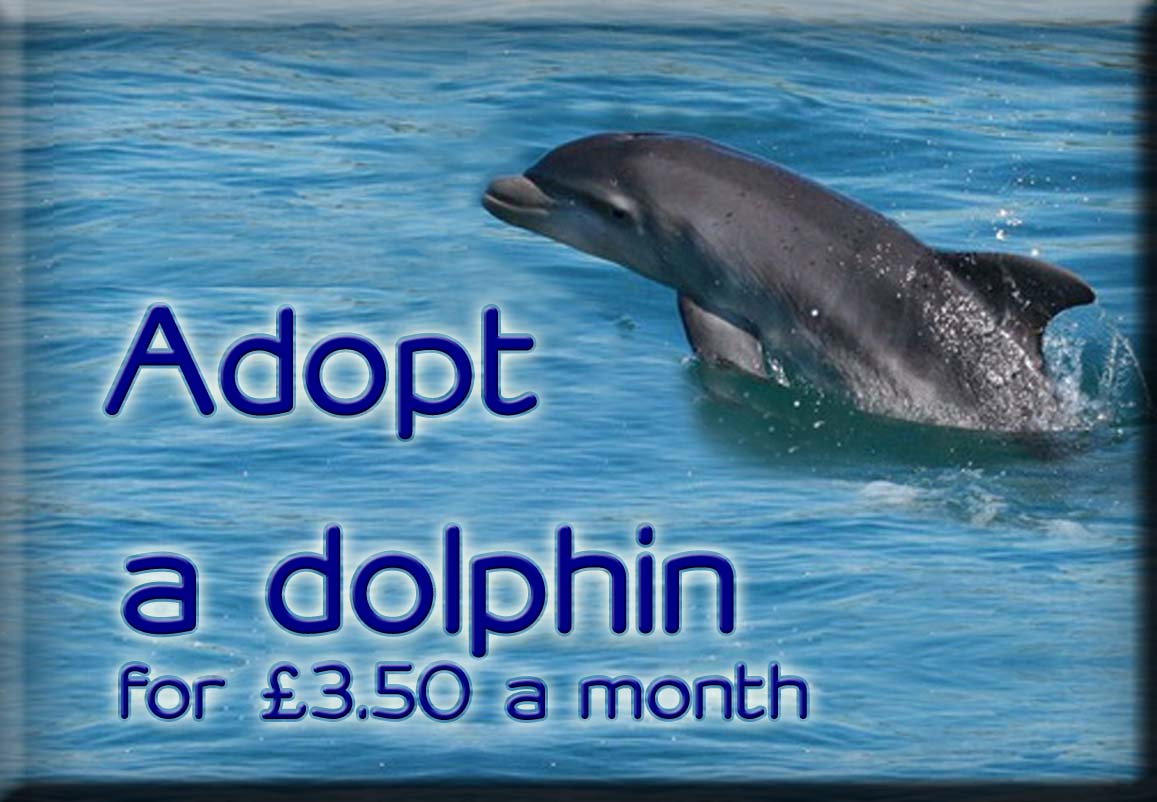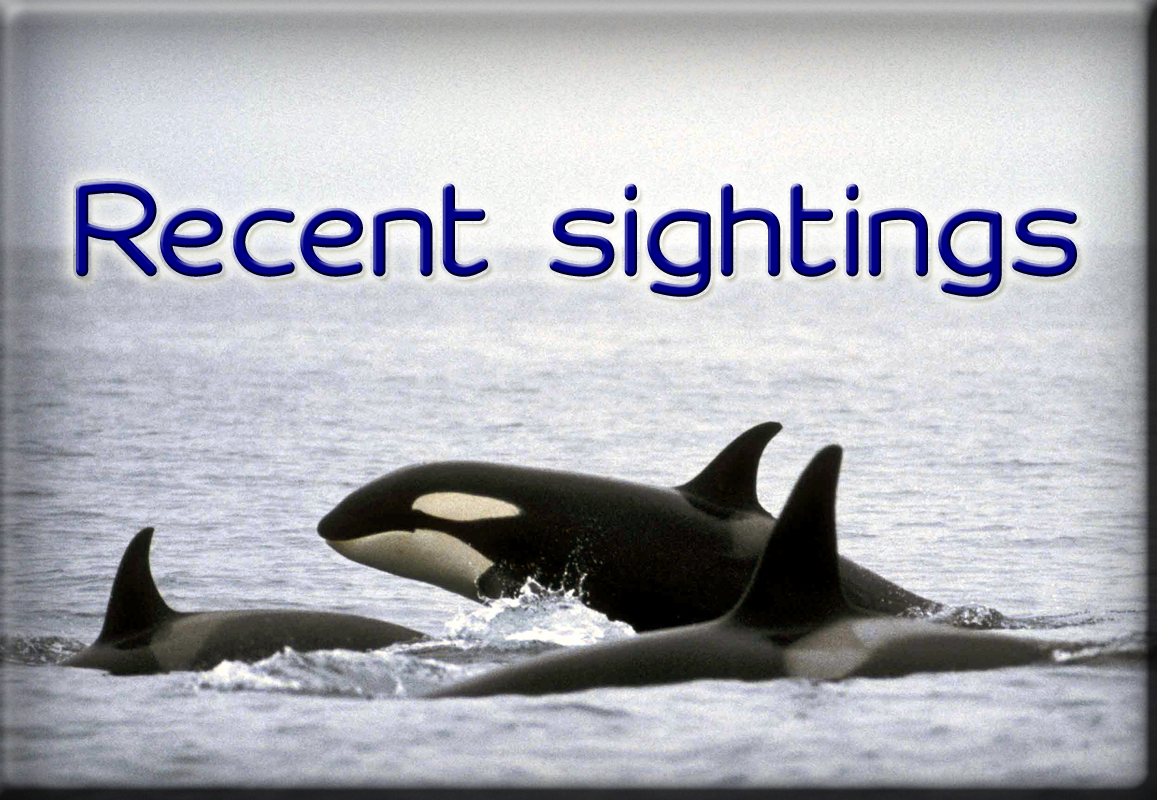A rare visitor has been causing a stir in Wales! The juvenile walrus that was first spotted on Valentia Island off Co. Kerry in Ireland, has made its way to Wales and is delighting walkers around the Pembrokeshire coast.
It first surfaced on the 19th March in Broad Haven South Beach, Pembrokeshire where it hauled out and rested before returning to sea. After disappearing for a few days, it was re-sighted further South on the 22nd March by local birder Toby Phelps who reported the details of the sighting to Sea Watch Foundation’s (SWF) Monitoring Officer. It was observed in the new, undisclosed, location for two days before disappearing once more.
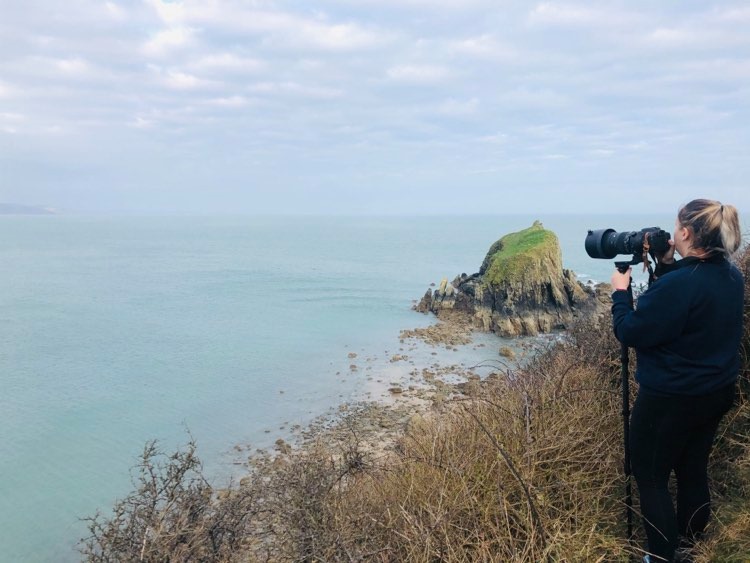
Monitoring Officer Katrin Lohrengel, accompanied by Research Assistant Claudia Afeltra and local volunteer Josh Pedley, monitored the animal for two hours on Tuesday during a socially distanced land based watch to assess the animals behaviour from a nearby cliff.
Based on the observed dive patterns, it is possible that the animal was foraging when initially observed; spending little time at the surface and diving repeatedly in the same area. Walruses feed primarily on molluscs such as clams and this area of Pembrokeshire is known for razor clams which may have incentivised it to stay in this area. This is an encouraging observation as previous observations suggest the juvenile walrus may be slightly underweight. Later in the day it was seen ‘bottling’ at the surface, a behaviour also often observed in seals where the animals rest at the surface, their body hanging vertically in the water column with only their heads above the surface.
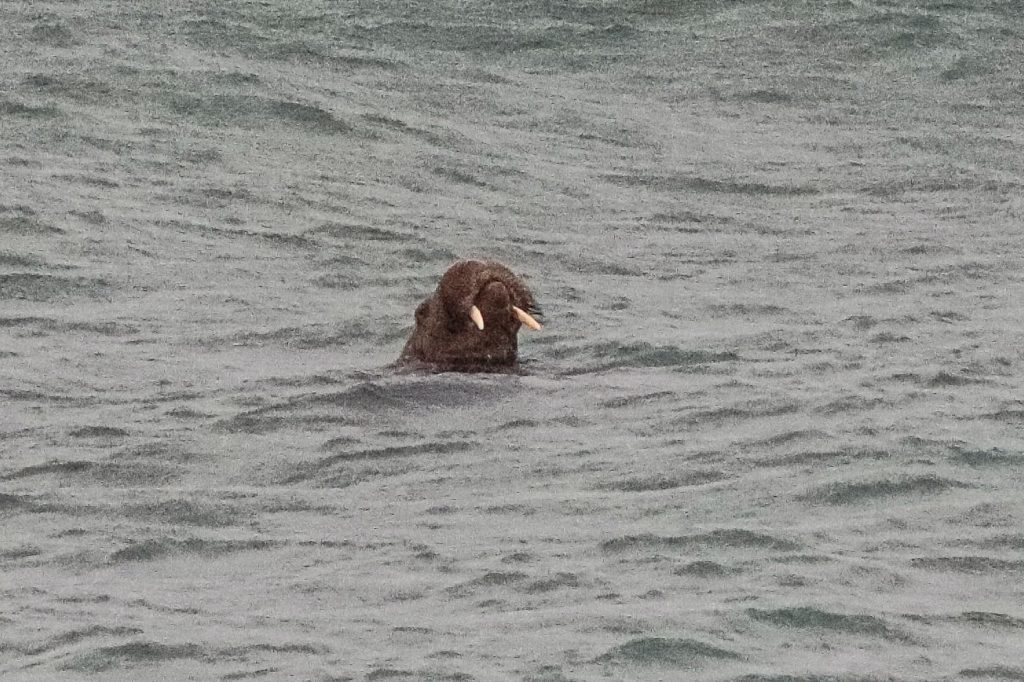
This was an exciting and unique experience for the whole SWF team.
“We don’t even have an option for this on our data forms!”said Monitoring Officer Katrin Lohrengel who usually works primarily with bottlenose dolphins,”It’s an amazing animal to see and I feel very lucky that I am in a position to witness it! It seems to be behaving normally as far as we can tell and does not seem in any obvious distress but non of us are walrus experts. We will have to wait and see.”
“This is definitely already the sighting of the season,”said local volunteer Josh Pedley,”I am speechless.”
“This is the most unlikely and most exciting sighting of my career so far,” SWF Research Assistant Claudia Afeltra agreed,”It was amazing.”
This is not the first walrus to visit British shores but may be the first one to be sighted this far south in the UK with most other sightings occurring in northern Scotland. In 2018, Sea Watch Foundation regional coordinator, Carl Chapman spotted the affectionately named ‘Wally’ the walrus in Orkney and another individual was previously spotted in Orkney in March 2013.
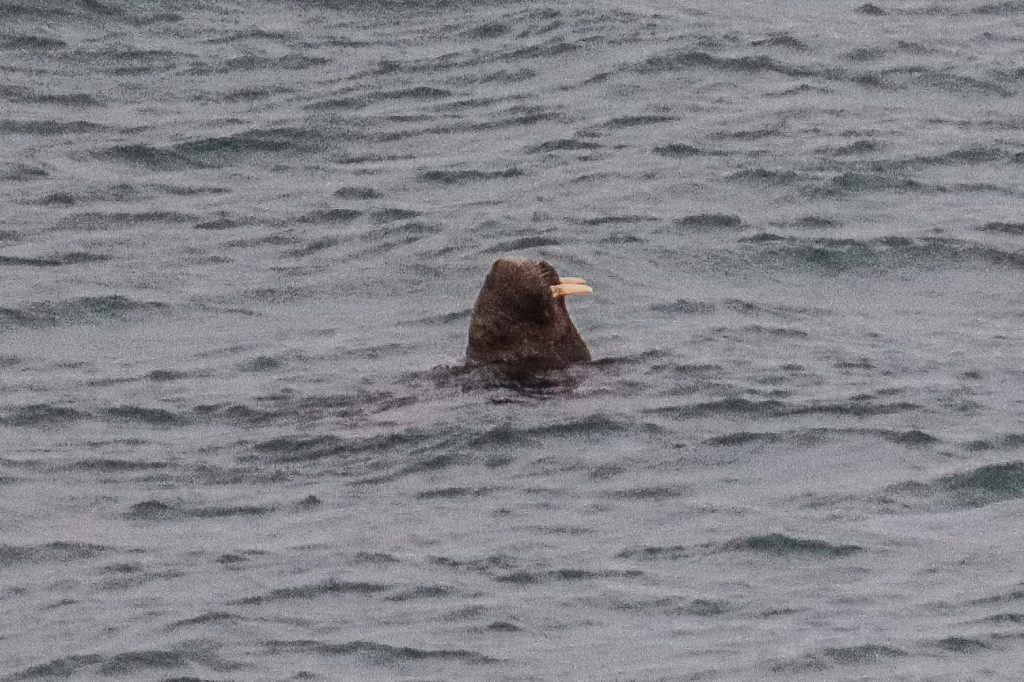
Walruses are not the only arctic visitors that have been spotted in UK waters. In September 2015, Sea Watch Foundation reported beluga whales off Northumberland and more recently Benny the beluga spent 2 months living in the Thames in 2018. Prior to these two sightings, SWF has recorded an additional 12 beluga sightings in the UK, the majority of which were in Scotland. Furthermore, in 2016, SWF recommended boat operator Marine Discovery Penzance reported the second ever sighting of a bowhead whale in Britain, another arctic species spotted far from its home range.
Dr Peter Evans, Founder and Director of Sea Watch Foundation, says of the sighting “With global warming, one might wonder why this arctic species should be here. One possible explanation is that ice melt is causing the ice to fragment, forming icebergs & pack ice to drift south from the arctic; many of these species closely associate with ice.”
If you are fortunate enough to encounter this rare traveller, please be sure to keep a respectful distance of at least 100m. Do not approach the animal directly and keep dogs on leashes.
Whether you spot a walrus or another marine mammal, please get in touch with the Sea Watch Foundation and report your sighting! Any sightings submitted will be added to our national database and contribute to improving our understanding of British marine mammal populations and distributions. You can use our online sightings form or download our Sea Watcher App (https://www.seawatchfoundation.org.uk/sea-watcher-app/) to record sightings while you are out!
Walrus location details will be handled confidentially and not publicly shared in order to reduce potential disturbance to the animal.

